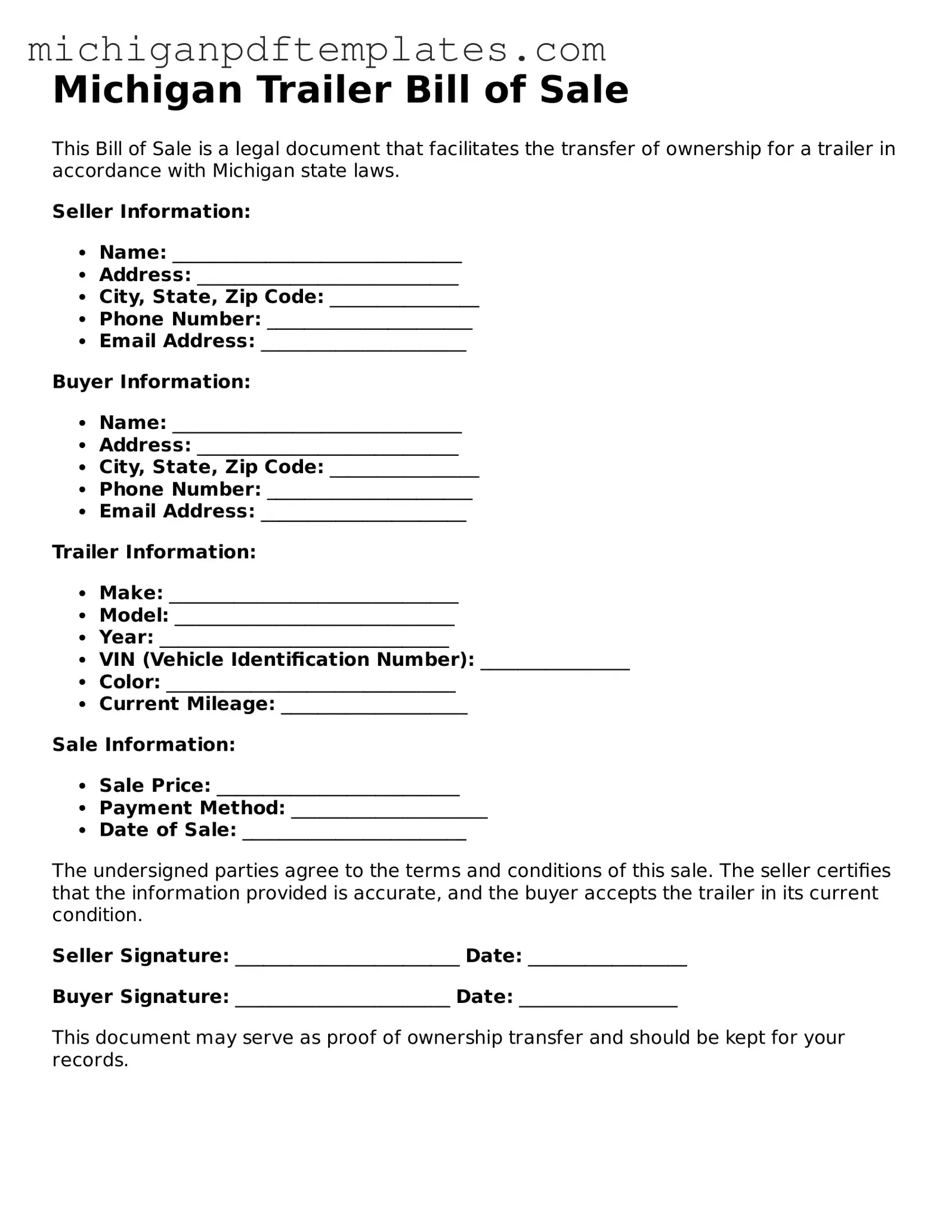Legal Michigan Trailer Bill of Sale Template
The Michigan Trailer Bill of Sale form is a legal document used to transfer ownership of a trailer from one party to another. This form outlines essential details such as the trailer's description, sale price, and the signatures of both the buyer and seller. Completing this form is crucial for ensuring a smooth transaction and proper registration of the trailer.
To fill out the form, click the button below.
Get Your Form Now

Legal Michigan Trailer Bill of Sale Template
Get Your Form Now

Get Your Form Now
or
▼ PDF Form
Finish this form quickly and move on
Fill in and complete Trailer Bill of Sale online quickly.